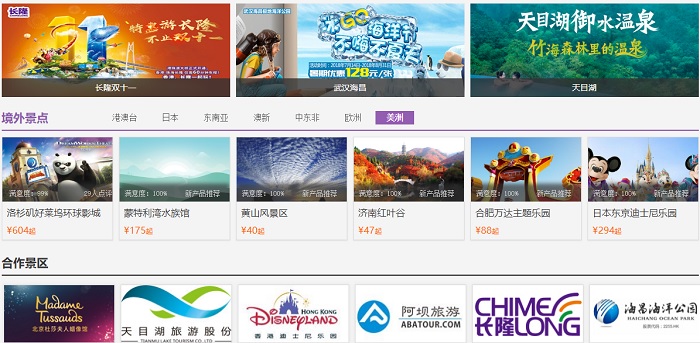 What is today’s Chinese traveller looking for and how do we give it to them? This is one of the most important questions facing our industry today.
What is today’s Chinese traveller looking for and how do we give it to them? This is one of the most important questions facing our industry today.
A recent report from Chinese travel agency Tuniu posits experience as one of the most important factors influencing Millennial and Gen Z travellers from China.
The report suggests that the appeal of experiences can be accredited, at least in part, to how shareable they are. And this applies both to sharing the experience on social media and to the immediate sharing with physical companions.
Read on for expert insight into the report’s findings from acclaimed publication Jing Daily, a content partner of The Moodie Davitt Report.
China’s post-’90s-born travellers are constantly seeking experiences – a trend already covered by many reports – and they want to share those experiences with the internet, but also with their friends on the trip, according to Chinese online travel agency Tuniu’s Post-’90s Tourism Consumption Report.
Released on 12 November, the report is partly based on the consumption trends during this year’s Singles’ Day shopping holiday on 11 November, and said that the number of post-’90s travellers in 2018 increased by +10% year-on-year.

Based on the results of its survey and reports by Chinese media outlet Sina, the travel agency claims that the post-’90s traveller demographic wants to take photos and videos to share on social media.
Alibaba’s online travel agency Fliggy echoed this trend, noting that many of those consumers made thousands of reservations for four and five-star hotels and Michelin-starred restaurants, which are experiences that would likely be shared on social media channels like WeChat, Weibo, and Douyin.
Most post-’90s travellers want their experience to include a lot of walking, local markets, food, and interacting with locals.
The vast majority of respondents to Tuniu’s survey (97%) said that they wanted to walk around and visit local markets at a destination. Night markets and seeking out local specialties were top priorities for 90%, while 87% said they wanted to see local performances. 70% of respondents said they wanted to interact with locals.
The post-’90s Chinese travellers are also more flexible in their holiday times, as they seek to save money on their vacations by traveling during non-peak times. They will often combine annual leave with national holidays to extend their trips and save money on non-peak flight times. Additionally, their preferred travel window is September through October.
Although many are booking their experiences ahead of time, the platform added that a growing number of these travellers are waiting to confirm their itineraries, with some even waiting until the last minute to decide what to do upon arrival.

Similar to Ctrip.com International’s data from the shopping event, Tuniu reported that most of its younger customers were booking trips for one person, indicating that they might be considered solo travellers.
However, Tuniu also added that its solo customers are more interested in joining their friends on trips rather than booking a tour, making the trip less about where they’re heading and more about who they’re going with. It noted that 71% of these individual travellers specifically booked trips because it was where their friends were going.
The demographic’s top ten outbound destinations, according to the survey, are Thailand, Japan, Indonesia, Singapore, Turkey, Egypt, Germany, France, Switzerland, and Italy, respectively.
Many young independent Chinese travellers are more interested in who they’re traveling with than their choice of destination.
Tuniu noted that about 30% of its customer base is in the post-’90s demographic, which is a bit lower than competitors Ctrip and Fliggy, but the company said that this consumer group is growing on their platform.
As this Chinese traveller demographic grows, online travel agencies must adapt to their demands, but destinations that want to attract more tourist dollars will need to comply as well. This means catering to an independent traveller and not the group-led tourist.
These travellers are also more likely to want to stay connected while traveling abroad, which will benefit telecom companies that offer traveller packages through mobile payments like Alipay and WeChat Pay. And while they may not need to speak Mandarin, it is important to offer accessible travel guides through WeChat mini-programs or through other social media channels.
Click here to read the full article and to subscribe to Jing Daily and Jing Travel.
*This article was originally published by the much-respected JING DAILY, a Moodie Davitt Report content partner.












